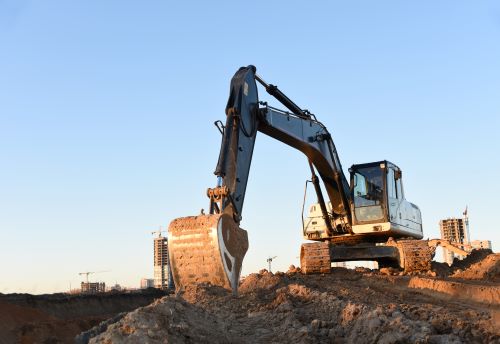
What Is a Heavy Equipment Operator?

What is a heavy equipment operator? Other than “a dream occupation for little boys and girls around the world,” the simplest answer would seem to be this: someone who operates heavy equipment. That is, of course, only part of the story. This simple definition glosses over questions about what counts as heavy equipment, what professional qualifications (if any) are required to be a heavy equipment operator, and how one might become qualified for the position.
In this article, we’ll answer all of those questions. So let’s examine: Just what is a heavy equipment operator?
What Is Heavy Equipment?
For such a simple term, the definition of what is and what is not “heavy equipment” can sometimes feel nebulous. After all, to most people, most mechanized construction equipment is heavy. A car is heavy; should a car count as heavy equipment?
One legal definition of heavy equipment is the state of Virginia’s, which defines it as a piece of self-propelled equipment exceeding 5,000 pounds, which is “primarily employed for construction, industrial, maritime, mining and forestry uses.” (By comparison, an average midsize car is about 2,500 pounds. So yes, a car is heavy, but heavy equipment is far more so).
Common examples of heavy equipment include, but are by no means limited to:
- Excavators—designed to pick up earth or other materials with a scoop mechanism. One particular type of excavator, the bucket-wheel excavator (BWE), is among the heaviest giants of all heavy equipment. A BWE called Bagger 293 is the largest land vehicle in the world, weighing 31 million pounds. (As much as 12,400 mid-size cars. How’s that for heavy?)
- Dump trucks—designed to haul and deposit large quantities of material (often with some highway travel included).
- Cranes—designed to lift and lower heavy loads.
- And many, many more.
What Is a Heavy Equipment Operator?
In order to be a heavy equipment operator—one of the men and women who operate the vehicles described above and many more—you’re going to need training and experience. Operating heavy equipment is skilled work, after all. The qualifications for being a heavy equipment operator typically include:
- Education. A high school diploma or GED is sufficient to be a heavy equipment operator.
- Training. Heavy equipment operators often apprentice under seasoned veteran operators, getting on-the-job training and valuable experience. However, this often comes alongside classroom training. According to the BLS, heavy equipment operator apprentices usually have to complete at least 144 hours of instruction, often annually.
- Licenses. There is no nationwide “heavy equipment operator license.” However, before using any sort of construction equipment, operators are required to earn heavy equipment credentials. This is achieved by completing training and passing the appropriate assessments offered by an approved organization such as the National Center for Construction Education and Research, or NCCER.
As requirements can vary. Check with an experienced professional for specific requirements in your state and in your desired field of operation.
Now you know a heavy equipment operator is a skilled technician who operates heavy construction machinery such as bulldozers, cranes, backhoes, road rollers, dump trucks, and more. To become a heavy equipment operator requires the appropriate credentials, a high school diploma or equivalent GED, and considerable on-the-job training or an apprenticeship.
If you’re interested in top-notch heavy equipment training from accredited experts or want to know what the specific requirements are in your area, contact West Coast Training today.
